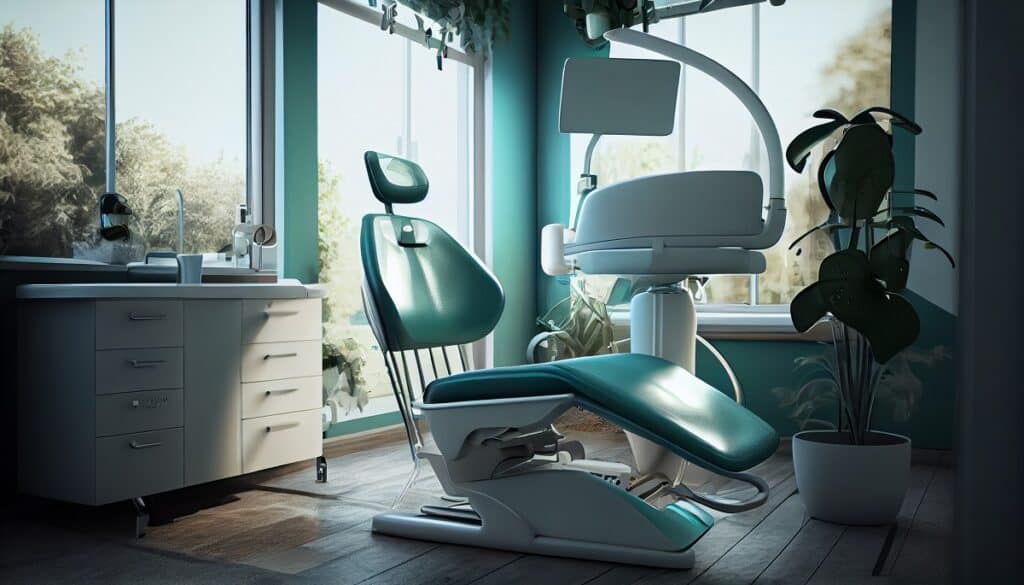With a significant portion of the UK population classed as overweight, it’s important for there to be suitable facilities for bariatric patients to receive healthcare in a safe environment. In order to safely treat patients who have a body mass index greater than 30, all staff will need to be trained and prepared with suitable equipment. Many patients end up struggling to find dental care providers who can meet their specific needs and end up going untreated for dental issues that would otherwise be easily avoided. At Design Specific, we work to ensure that more dental practices around the country have access to treatment chairs and wheelchair platforms to make dentistry more accessible. We work together with dentists and to fully equip their practices with expertly designed seating.
Ensuring patient safety in your practice
Standard dental chairs are unable to safely support weight that exceeds 20 stone. In order to stay compliant with Health and Safety, patients who are classed as bariatric will have to be referred to a specialist unit where they can accommodate overweight patients. It can be distressing for patients to be in a position where they can’t receive treatment down mobility issues and their weight. However, legally you can only treat patients with the right equipment for their safety as well as your staff’s. All healthcare providers have a duty of care and must keep a safe environment under the Work Act 1974. You could be liable if you do not have dental chairs that can safely seat bariatric patients. Even if the patient is aware of the risk, you’ll still be responsible for their safety.
If you’re unsure whether your equipment has been designed for greater weights, check with the manufacturer. Equipment that is designed to take on large working loads should be marked and have clear specifications.
Carry out a risk assessment
If you have the right equipment and dental chairs that can comfortable and safely seat Bariatric patients, you will need to carry out a risk assessment. This should follow these five steps.
Step 1: Identify the hazards.
Step 2: Decide who may be at risk
Step 3: Evaluate the risks and decide on how to avoid them
Step 4: Record your findings.
Step 5: Review your assessment
Once you have carried out a risk assessment, you will be able to update your practice policy to confirm that you have the facilities to safely treat bariatric patients. Throughout the process, you will need to make sure that the whole team knows about the risk and how to safely deal with them. Everyone has a part to play, the reception team who receive the patients as well as the nursing team who will assist in manually moving the patient into the treatment chair. Risk assessments aren’t just to make sure your practice is Health and Safety compliant. They also help teach your staff in how to treat all patients in a safe and respectful manner.
Use equipment that can safely support the patient’s weight
While equipping your practice with a specially designed bariatric chair will make dental care more accessible, bariatric patients have varying degrees of mobility. Every piece of equipment that a bariatric patient will use – such as chairs, benches, trolleys, beds, hoists and slings – will need to have a safe working load (SWL). All equipment that has been designed to support the weight of a bariatric patient should be marked with a yellow label with the designated SWL marked clearly.
When moving a bariatric patient through the practice, you should assess the move and plan accordingly. If you don’t have walking aids, make sure your staff can safely help them to move in the practice. Never lift a bariatric patient alone.
Communication and Training
It’s essential that all clinical staff receive training in how to address the needs of bariatric patients. All staff should be trained annually according to NHS guidelines here. Key trainers can run training at your practice and help your management team to properly risk assess individual cases for patient safety.
All staff need to know how to communicate with bariatric patients while at the practice to be able to safely treat them. While moving them through your practice, it’s important to keep talking to your patient and make sure they feel comfortable and safe. Their privacy and dignity must be observed at all times.

Interior of a modern dental clinic with a chair. Generative Ai
How to adapt your dental practice to meet the needs of bariatric patients
We can help you to offer dental care to all your patients, regardless whether they are classed as bariatric or have a disability that affects their mobility. At Design Specific, we not only offer state-of-the-art dental chairs that allow for comfortable and safe treatment, we also provide wheelchair platforms. These remove the need to have patients leave their wheelchairs and can be treated safely without needing to be moved.
The best way to trial our Compact Wheelchair Recliners & Bariatric Treatment Chairs is in person. We can arrange inhouse demonstrations of our equipment at your convenience. We also are at various Dental Shows focussed in Special Care in Dentistry including the SCDA (Special Care Dentistry Association) and NNOHA (National Network for Oral Health Access).
We can also help you to review the Health and Safety at your practice as we are experts in catering for bariatric patients and their unique needs. If you’re interested in adapting your practice to provide safe dental care, you can contact us here or give us a call on +44 (0) 1273 813904.




